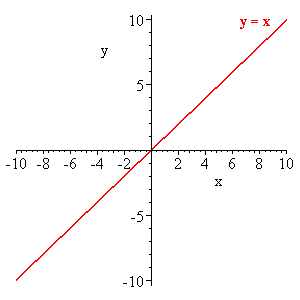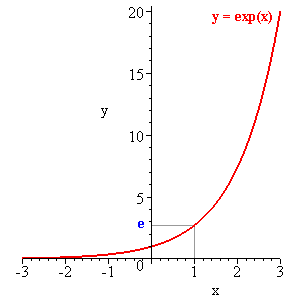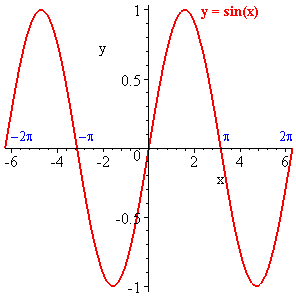
|
|
||
A standard function is one defined on an interval of R that is obtained by a finite sequence of standard operations starting from any combination of three basic functions.
What are the basic functions?
The identity function f(x) = x

The exponential function f(x) = exp(x)

The sine function f(x) = sin(x)

What are the standard operations?
Multiplication by a number in R, addition, subtraction, multiplication, division, substitution of the value of one function as argument of another, and taking the "inverse".
Most of the functions we encounter will be standard functions.
Examples: 4x2, x sin(x), ![]()
You can enter your favorite standard functions, f and g, in the following applet, and observe the effects of combining f and g in various ways, and also look at the inverse function to f.
Note that when f has the same value for more than one argument, you must decide
which of these arguments you want to call the value of the inverse function.
|
|